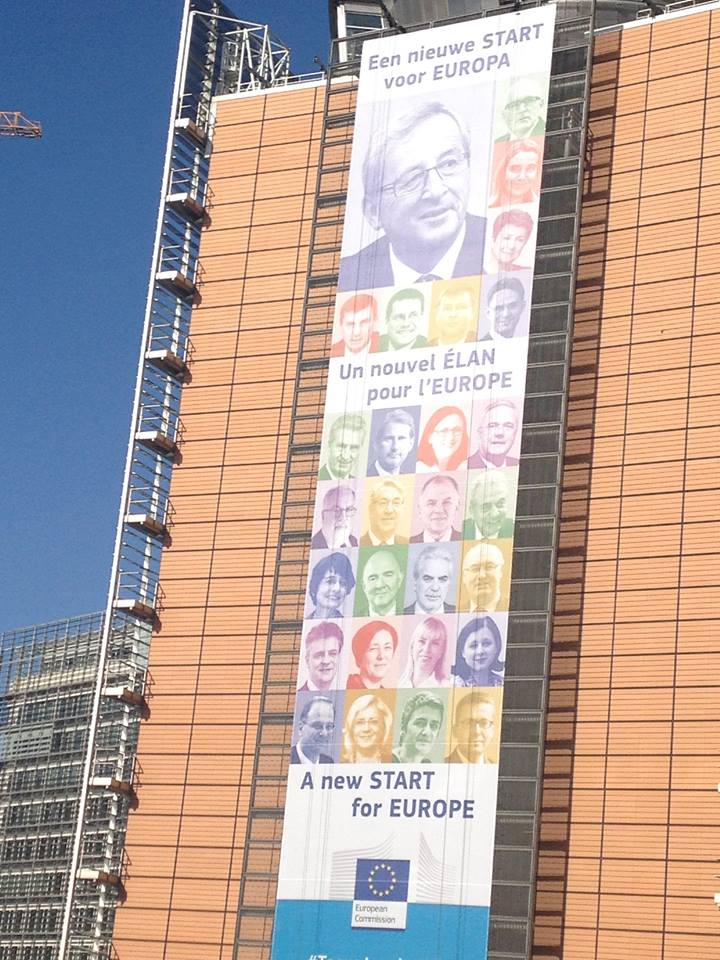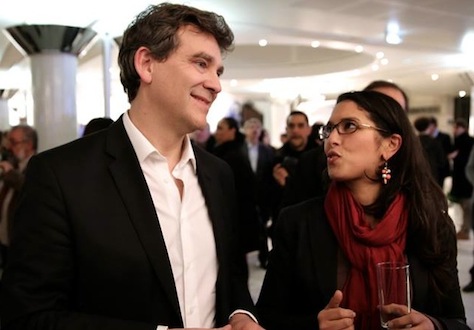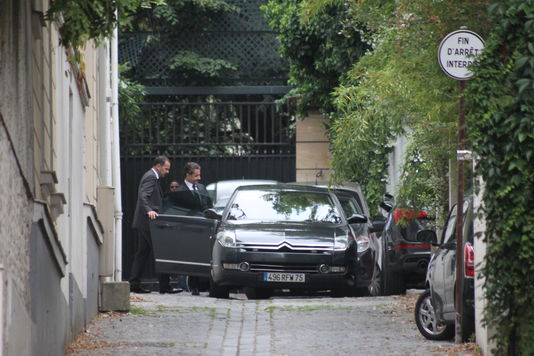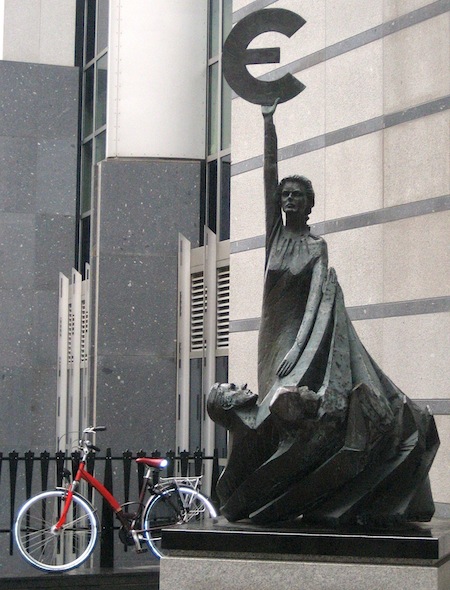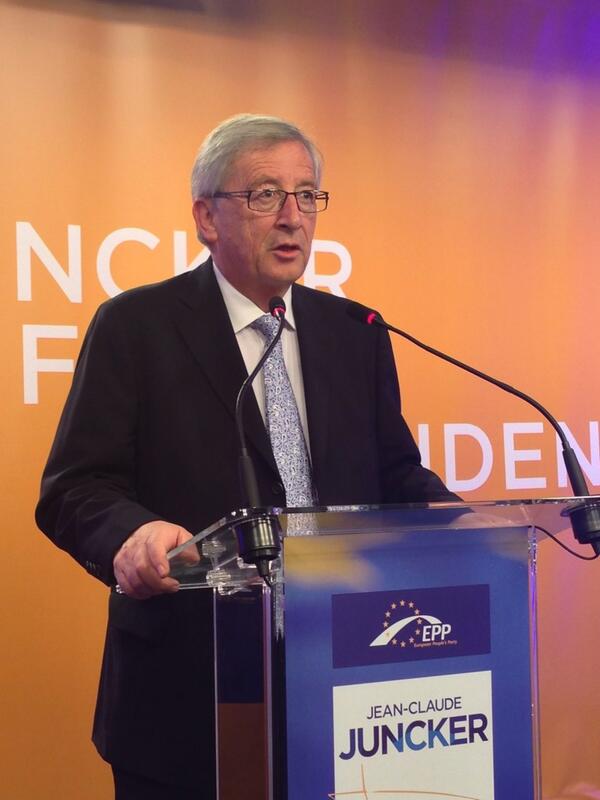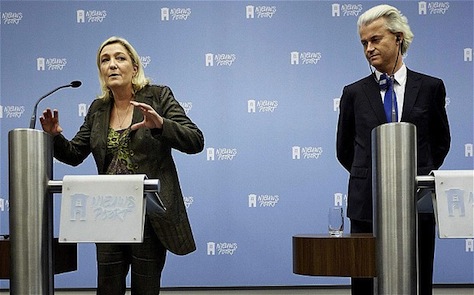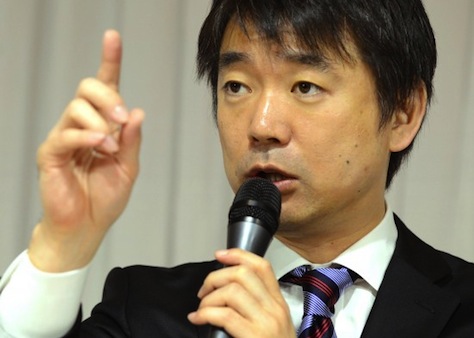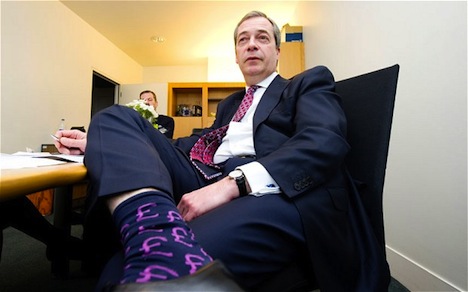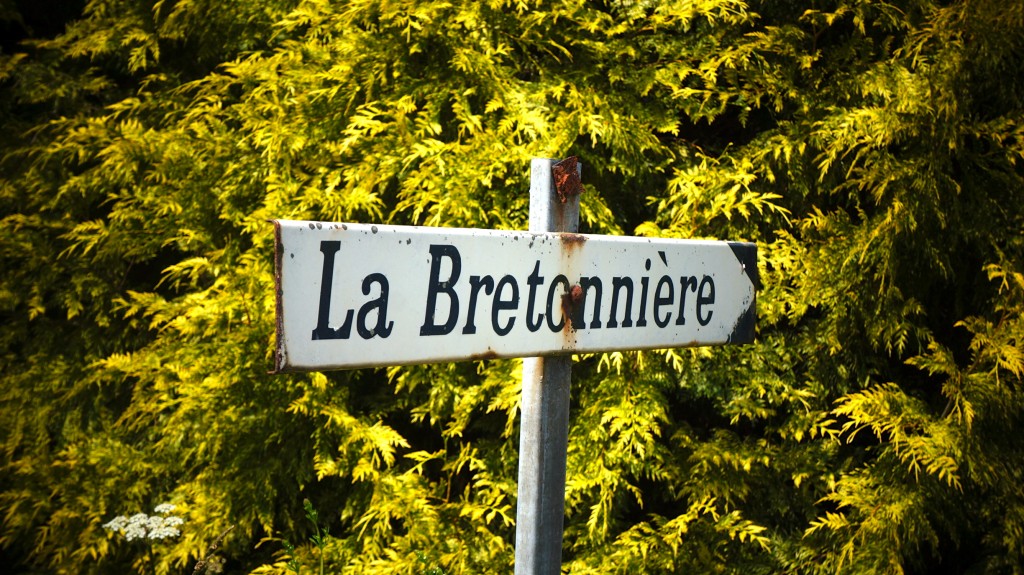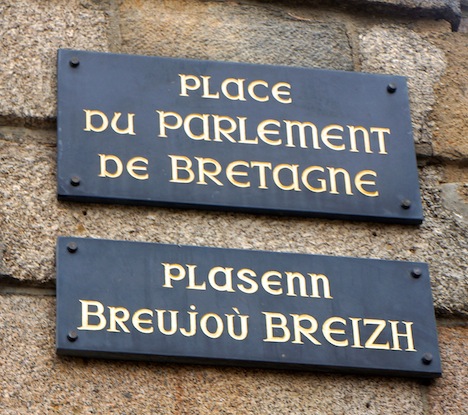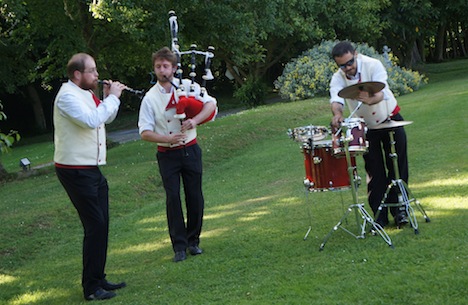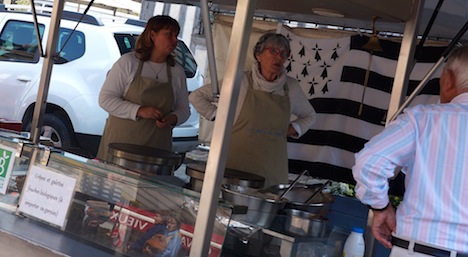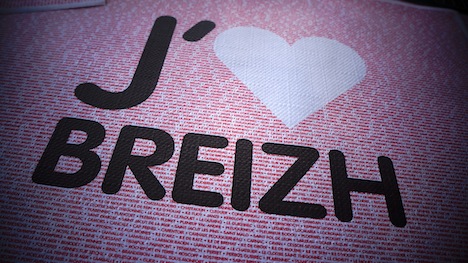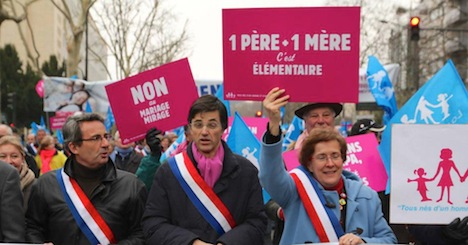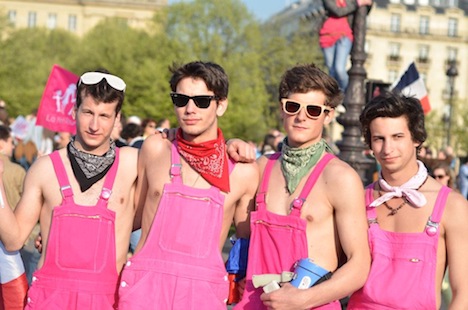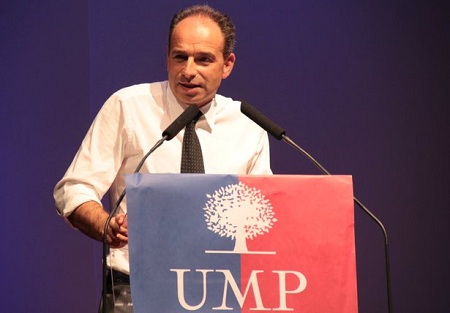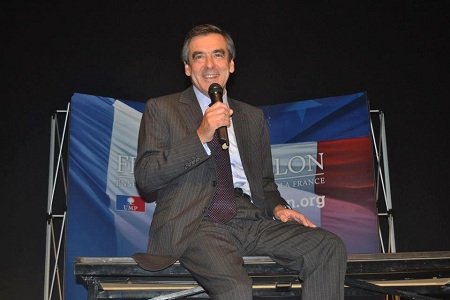It’s a very embarrassing position for Juncker, because he only took office as the president of the European Commission a few days ago, and he’ll take some perhaps well-deserved political heat for the matter, and it probably reduces his credibility on tax reform matters.
Everyone has, in the back of their minds, the example of the Santer Commission, which resigned en masse in 1999 over corruption. For now, the revelations do not appear to implicate Juncker in anything more than the kind of aggressive steps that state leaders sometimes take to attract foreign development and investment. If, for example, Juncker was found to have taken personal kickbacks in exchange for favorable treatment, it would be a much more serious allegation for himself, for the Commission, and for confidence in Luxembourg’s institutions. But there’s no evidence of that.
Meanwhile, the Commission is a professional regulatory body, and any investigations into Amazon or other companies that received state aid in potential violation of European law will be conducted by Denmark’s Margrethe Vestager, the EU commissioner for competition, who is a former minister of economic affairs and deputy prime minister. It’s helpful, from an ideological perspective, that Vestager comes from the Danish Social Liberal Party, which should give some comfort to the European Parliament’s leftists. Ultimately, this is less a ‘scandal’ than a valid policy issue, insofar as Luxembourg and other countries have long pushed the envelope in making their jurisdictions extremely favorable to international companies. Note the Irish government’s decision last month to revise the ‘double Irish’ structure so common in the taxation of intellectual property assets. So as the Commission and other EU (and even international) institutions look into these decisions, it will help clarify the line between permissible and impermissible in the future.
Marine Le Pen is hardly the best critic on the matter, because her party has long been in favor of lowering taxes and promoting the kind of economic nationalist steps that Luxembourg’s officials may have taken with many international companies. Her call for Juncker’s resignation isn’t credible, but it’s very important for her to maximize support among the eurosceptic French right if she’s going to have any credible shot at winning the French presidency in 2017, a task made much more difficult by the return of former president Nicolas Sarkozy.
Tag Archives: marine le pen
Valls-Montebourg fissure could bring early French elections
It was always a stretch to believe that there was enough room in France’s government for both Arnaud Montebourg and Manuel Valls.![]()
Montebourg, who represents the unapologetically socialist wing of France’s Parti socialiste (PS, Socialist Party), received a promotion in April as economy minister when French president François Hollande reshuffled his cabinet and replaced former prime minister Jean-Marc Ayrault with Valls. At the time, it was hardly clear that Montebourg deserved it after picking fights with prominent foreign businessmen in both the United States and India and waging an avowedly protectionist ‘Made in France’ campaign while serving as minister for industrial renewal. Montebourg (pictured above), with a charming grin, trim figure and a wavy swath of dark hair, who last weekend shared a photo of Loire Valley red wine on his Facebook feed, fits neatly into the American stereotype of the preening, tiresome, French socialist.
* * * * *
RELATED: Who is Manuel Valls? Meet France’s new prime minister
RELATED: Sapin, Royal, Montebourg headline new French cabinet
* * * * *
Valls, meanwhile, is leading Hollande’s government at a time when the Socialist administration is turning even more to the center, with a much-heraled (if hokey) ‘Responsibility Pact’ that aims to cajole French businesses into hiring a half-million new workers with the promise of a €40 billion payroll tax cut, financed by an even greater €50 billion in spending cuts. Though he’s regularly touted as a reformer, it’s more accurate to say that the Spanish-born Valls is a tough-minded ‘third way’ centrist who wants to rename the Socialist Party, which he considers too leftist. As interior minister, he showed he could be just as tough on immigration and crime as former conservative president Nicolas Sarkozy. When he became as prime minister in late March, Valls had the highest approval rating by far of any cabinet member. Today, his approval is sinking fast — an IFOP poll last weekend gave Hollande a 17% approval rating and Valls just 36% approval.
But Valls always had the support of Hollande and allies like finance minister Michael Sapin, and it was clear even in the spring that Montebourg was destined to become more isolated than ever in the Valls era.
It took less than five months for the cabinet to rupture. Montebourg publicly challenged Hollande over the weekend to rethink his economic policy in light of new data that show France’s economy remains stagnant — growing by just 0.1% in the last quarter, far below Hollande’s already-anemic target of 1%. Montebourg has also criticized Germany for encouraging austerity policies throughout the eurozone that he and other left-wing European politicians and economists blame for weakening the continent’s economic growth since the 2008-09 financial crisis.
In response, Valls orchestrating a dramatic resignation on Monday morning, though Hollande has given him a mandate to form a new government that won’t include Montebourg or allies like education minister Benoît Hamon and culture minister Aurelie Filippetti.
The drama surrounding this week’s reshuffle is hardly welcome so soon after Valls’s initial appointment, and Hollande risks a wider revolt on the French left that could endanger his agenda in the Assemblée nationale (National Assembly), where Socialist rebels could join legislators from the center-right Union pour un mouvement populaire (UMP, Union for a popular movement) in opposition to his agenda. Valls will introduce the 2015 budget in the autumn, and if he fails to pass it later this year, his government could fall and Hollande might be forced to call snap elections that the Socialists would almost certainly lose. Continue reading Valls-Montebourg fissure could bring early French elections
Don’t rule out Sarkozy just yet for 2017 comeback
At the rate that the French political elite is going, Dominique Strauss-Kahn might be the last palatable option standing to challenge nationalist Marine Le Pen in the 2017 election.![]()
The decision by French prosecutors to open a formal investigation into former president Nicolas Sarkozy today, following his detention on Tuesday for questioning, is certain to rupture Sarkozy’s comeback plans to lead the French center-right in the April 2017 presidential election, leaving both major parties sullied by unpopular, unimaginative and possibly corrupt leadership.
But even as French and global analysts begin writing Sarkozy’s obituary, the current investigation, which involves Sarkozy’s alleged attempts to trade a job in plush Monaco to a judge in exchange for illegal information relating to another investigation, may not necessarily torpedo Sarkozy, even as the former president faces additional legal troubles in related corruption cases.
That will be especially true if Sarkozy is ultimately exonerated, given the aggressiveness with which French investigators have pursued Sarkozy. If he’s not found guilty, the investigations could actually strengthen Sarkozy, allowing him to play victim against an aggressive, out-of-control French judicial system. That’s a well-worn path that’s worked for other European leaders in the past, including former Italian prime minister Silvio Berlusconi. Sarkozy has already compared the phone-tapping to East German Stasi tactics, and he appeared on French television Wednesday night to blast the ‘political exploitation’ of the legal system.
Nevertheless, Sarkozy will find it difficult to proceed with plans to retake the presidency of his center-right Union pour un mouvement populaire (UMP, Union for a popular movement) later this year. Sarkozy is believed to be keen on returning to the UMP presidency in light of former UMP president Jean-François Copé’s resignation in late May, related to accusations of falsifying 2007 campaign invoices to evade spending limits.
The current scandal revolves around phone taps that revealed conversations between Sarkozy and his attorney, Thierry Herzog. Those taps, however, were originally designed to gather information about whether Sarkozy’s 2007 campaign was illegally financed with up to €50 million from former Libyan president Muammar Gaddafi.
The Herzog conversations, however, relate to yet another scandal, the Bettencourt affair, in which L’Oréal heiress and socialite Liliane Bettencourt may have ferried illegal funding to Sarkozy’s reelection efforts. Though investigators ruled out charging Sarkozy in the Bettencourt matter, the case revolved around the admissibility of Sarkozy’s presidential diaries.
Sure, that’s a lot of scandal and a lot of circumstantial noise surrounding Sarkozy. But what happens if Sarkozy actually goes to jail? Continue reading Don’t rule out Sarkozy just yet for 2017 comeback
The US perspective on the European parliamentary elections
I sat down with Brian Beary from Europolitics late Sunday night to discuss the results of the European parliamentary elections, with a particular focus on the US perspective. ![]()
![]()
The link is here (unfortunately, subscription only), but here’s one excerpt:
Is there a US equivalent to the Eurosceptics that did so well in the European elections?
In a formal sense, it is a peculiarly European thing. There are no parties in the US that are saying ‘we need to pull out of the United States’. The one thing they do share is that politicians in the US, for at least two generations now, in every election run against Washington. And in Europe, whether it is the hard Euroscepticism of groups like UKIP or Front National, or the soft Euroscepticism of certain members of the British Labour Party, or Silvio Berlusconi, there is an anti-Brussels-ness that reminds me of the way US politicians campaign against Washington.
Though many commentators and academics like to refer to the European Union today as a kind of ‘United States of Europe,’ especially during the EU’s ill-fated constitutional debate in 2004 and 2005, I argued that the European Union today more closely resembles the confederation of US states that existed under the 1781 Articles of Confederation.
Most US headlines in the lead-up to the European elections have concerned Ukraine and the ongoing security crisis and showdown with Russia that’s caused a regeneration of interest in transatlantic security, NATO’s role and additional follow-on issues, such as the potential US export of liquified natural gas to Europe. In the aftermath of the European elections, US headlines are focusing on the rise of eurosceptic parties like Nigel Farage’s UK Independence Party and Marine Le Pen’s Front national in France.
In both cases, that’s understandable — and both topics are incredibly important. The real issues where the European Parliament will have the most impact in the next fiver years, however, are somewhat less sexy, but they should be on the radar of US policymakers and investors in the years ahead: Continue reading The US perspective on the European parliamentary elections
A detailed look at the European parliamentary election results (part 1)
We now have most of the results from across Europe in the 28-state elections to elect all 751 members of the European Parliament.![]()
At the European level, the center-right, Christian democratic European People’s Party (EPP) emerged with about 25 more seats than the center-left, social democratic Party of European Socialists (PES).
That immediately gives former the EPP’s candidate for the presidency of the European Commission, former Luxembourgish prime minister Jean-Claude Juncker, a boost in his efforts to actually become the Commission president. But it’s still far from automatic, despite Juncker’s aggressive posture at a press conference Sunday evening:
“I feel fully entitled to become the next president of the European Commission,” Juncker, a former Luxembourg prime minister, told supporters late yesterday in Brussels after the release of preliminary results. Premier for 18 years until he was voted out of office in December, Juncker also gained recognition in his dual role as head of the group of euro-area finance ministers during the debt crisis.
Juncker (pictured above) still must to convince the European Council to propose him as Commission president, and he’ll still need to win over enough right-wing or center-left allies to win a majority vote in the European Parliament.
* * * * *
RELATED: Here come the Spitzenkandidaten! But does anybody care?
* * * * *
That process, which could feature a major battle between the European Council and the European Parliament, will unfold in the days, weeks and possibly months ahead.
But what do the results mean across Europe in each country? Here’s a look at how the European elections are reverberating across the continent. Continue reading A detailed look at the European parliamentary election results (part 1)
A rogues’ gallery of the EU’s top 13 eurosceptic parties
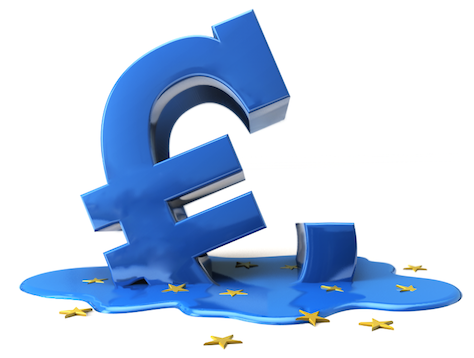 As voters in 28 European countries prepare to head to the polls, beginning on May 22 and running through May 25, no one knows whether Europe’s center-left or center-right will win more seats, and no one knows who will ultimately become the next president of the European Commission.
As voters in 28 European countries prepare to head to the polls, beginning on May 22 and running through May 25, no one knows whether Europe’s center-left or center-right will win more seats, and no one knows who will ultimately become the next president of the European Commission.![]()
But the one thing upon which almost everyone agrees is that Europe’s various eurosceptic parties are set for a huge victory — not enough seats to determine the outcomes of EU legislation and policymaker, perhaps, but enough to form a strong, if disunited, bloc of relatively anti-federalist voices. Voters, chiefly in the United Kingdom, France and Italy, are set to cast strong protest votes that could elect more than 100 eurosceptic MEPs.
In some countries, such as Spain, euroscepticism is still a limited force — the center-left opposition Partido Socialista Obrero Español (PSOE, Spanish Socialist Workers’ Party) is tied for the lead with the governing center-right Partido Popular (the PP, or the People’s Party) of prime minister Mariano Rajoy. But Spain is quickly becoming an outlier as eurosceptic parties are springing up in places where unionist sentiment once ran strong.
* * * * *
RELATED: In Depth: European parliamentary elections
RELATED: The European parliamentary elections are really four contests
* * * * *
Of course, not all eurosceptics are created equally. Some anti-Europe parties have been around for decades, while others weren’t even in existence at the time of the last elections in 2009. Some are virulently xenophobic, far-right or even neo-Nazi in their outlooks, while others are cognizably on the more mainstream conservative / leftist ideological spectrum. Some seek nothing short of their country’s withdrawal from the European Union altogether, while others seek greater controls on immigration. Some are even pro-Europe in the abstract, but oppose eurozone membership. That’s one of the reasons why eurosceptics have had so much trouble uniting across national lines — the mildest eurosceptic parties abhor the xenophobes, for example.
If everyone acknowledges that eurosceptic parties will do well when the votes are all counted on Sunday, no one knows whether that represents a peak of anti-Europe support, given the still tepid economy and high unemployment across the eurozone, or whether it’s part of a trend that will continue to grow in 2019 and 2024.
With 100 seats or so in the European Parliament, eurosceptics can’t cause very many problems. They can make noise, and they stage protests, but they won’t hold up the EU parliamentary agenda. With 200 or even 250 seats, though, they could cause real damage. There’s no rule that says that eurosceptics can’t one day win the largest block of EP seats, especially so long as most European voters ignore Europe-wide elections or treat them as an opportunity to protest unpopular national government.
For now, though, they’re all bound to cause plenty of trouble for their more mainstream rivals at the national level, and in at least five countries, they could wind up with the largest share of the vote. So it’s still worth paying attention to them.
Without further ado, here are the top 13 eurosceptic parties to keep an eye on as the results are announced on Sunday:
Continue reading A rogues’ gallery of the EU’s top 13 eurosceptic parties
Le Pen v. Wilders: a tale of two far-right European movements
The big story from Sunday’s municipal elections in France is the success of Marine Le Pen’s far-right Front national (FN, National Front), overshadowing the marquee Paris mayoral election.![]()
![]()
![]()
The far-right won the mayoral race in Hénin-Beaumont, a former mining town in the north, in a rare first-round victory, the FN came in second in Marseille, France’s second-largest city, and it led in at least six other locations as France prepares for second-round runoffs on March 30.
The result should certainly boost Le Pen in her efforts to win support in European parliamentary elections in May — and to unite the populist hard right across the continent.
According to preliminary results, the Front national won just 4.65% of the national vote. That’s a big deal because the party was running in just 597 of around 37,000 jurisdictions — it’s a massive increase from the 2008 municipal results, when the FN won around 1% and ran in just 119 constituencies.
The other narrative from Sunday’s vote is the collapse of France’s center-left — president François Hollande’s Parti socialiste (PS, Socialist Party) won 37.74% nationally, while the center-right Union pour un mouvement populaire (UMP, Union for a popular movement) of former president Nicolas Sarkozy won 46.54% nationally. The bright spot for the Socialists remains Paris, where first deputy mayor Anne Hidalgo is the slight favorite to win a runoff against former Sarkozy campaign spokesperson and ecology minister Nathalie Kosciusko-Morizet — but don’t rule out an upset next Sunday there, either.
The success in the 2014 municipal elections is just the latest chapter for Le Pen’s rebranding of the Front national in France as a slightly more moderate alternative than the party her father, Jean-Marie Le Pen, led for decades. It’s harder today to target the Front national as a xenophobic, anti-Semitic fringe, because Le Pen has focused on an agenda much heavier on euroskepticism and economic nationalism. While the Front national isn’t exactly immigrant-friendly, its position has largely converged with the UMP’s position since the Sarkozy presidency, which embraced hard-right positions on immigration and law-and-order issues. By shifting rightward, Sarkozy may have sidelined Le Pen during his presidency and co-opted her supporters, but today, Sarkozy is almost as responsible as Le Pen for bringing the Front national within the political mainstream.
With the line blurring between the UMP and the Front national, Le Pen could become the chief voice of the French right in 2017, especially if the UMP succumbs to more infighting between its right-wing leader Jean-François Copé and the more moderate former prime minister François Fillon. The next presidential election is still a long way off, but if Sarkozy doesn’t run for the presidency in 2017, Le Pen stands just as much chance as Copé, Fillon or any other UMP figure of representing the French right in the second round.
More immediately troubling for France’s political elite are the European parliamentary elections in May. Despite its breakthrough performance on Sunday, the Front national isn’t about to overrun the city halls of France. Its victory is more symbolic than substantive. But if it’s one thing to turn over your local government to Marine Le Pen, it’s a far different thing to support the Front national as a protest vote with respect to European Union policy.
Polls show that the Front national and the UMP are competing for first place in the European elections within France — the most recent Opinion Way poll from early March shows the UMP winning 22%, the FN winning 21% and the Socialists just 17%. It wouldn’t be surprising to see a wave of undecided voters support the Front national at the last moment, nor would it be a surprise to learn that polling surveys currently underestimate FN support.
Extremists on both the far left and the far right are gaining strength throughout the entire European Union. That’s perhaps understandable, given the harsh economic conditions that have plagued Europe since the last EU-wide elections in 2009. But the euroskeptic right, in particular, seems poised for a breakthrough. Nigel Farage hopes to lead the anti-EU United Kingdom Independence Party to a breakthrough performance in May, and the Freiheitliche Partei Österreichs (FPÖ, the Freedom Party of Austria) is tied for first place in polls in Austria.
But just as Le Pen hits her stride, another standard-bearer of the hard right, Geert Wilders, found himself in free fall last week after pledging to allow fewer Moroccans into the Netherlands, remarks that have launched a cascade of criticism and a handful of defections from his party: Continue reading Le Pen v. Wilders: a tale of two far-right European movements
Weekend municipal elections from Japan to France
It’s another busy weekend for world politics — especially with regard to municipal elections in two G-8 countries.
Here’s a quick weekend update of the three world elections taking place today and tomorrow.
Maldivian parliamentary elections![]()
First, the Maldives on Saturday elected all 77 members of the Majlis, the unicameral Maldivian parliament. The parliamentary elections follow the highly botched presidential election last autumn — the initial September vote was annulled and Maldivian election officials postponed the vote to the point of constitutional crisis. By the time the country held a new vote in November, it pushed through a runoff just five days later. Former president Mohammed Nasheed, who won the first round, lost the runoff to Abdulla Yameen, the half-brother of Maumoon Abdul Gayoom, who previously governed the Maldives between 1978 and 2008.
The polls are already closed there, and the voting has gone smoothly, according to initial reports. Results are expected on Sunday, and the contest pits Nasheed’s Maldivian Democratic Party against Gayoom’s Progressive Party of Maldives.
In Japan, Osaka’s controversial mayor Tōru Hashimoto (橋下徹) is forcing a mayoral election after resigning in February in what amounts to a power play over his plan to unite the city of Osaka and Osaka prefecture into a larger ‘Osaka-to’ region.
Though no major party is running a candidate against Hashimoto (pictured above), the popularity of the former television personality has fallen rapidly both at the national and local level.
His bid to join forces with former Tokyo mayor Shintaro Ishihara to form the right-wing Japan Restoration Party (日本維新の会, Nippon Ishin no Kai) made waves in December 2012 when it nearly became the second-largest force in the lower house of the Japanese Diet, but Hashimoto’s rising star has faded over the past 15 months, not least of all because of his insensitive comments that attempted to justify the use of ‘comfort women’ — Korean sexual slaves — by Japanese soldiers during World War II.
Though Hashimoto will likely win reelection in the Osaka vote on Sunday, his critics have attacked the election as an unnecessary waste of taxpayer money.
Hashimoto, who served as the governor of Osaka prefecture between 2008 and 2011, has served as the city of Osaka’s mayor since 2011. In 2010, he founded the Osaka Restoration Association (大阪維新の会, Ōsaka Ishin no Kai) under the banner of ‘One Osaka,’ his longtime campaign to unite the prefecture and the city as one larger metropolis, like the structure of Tokyo’s combined metropolitan government. Osaka is Japan’s second-most populous metropolitan area, and Osaka prefecture, which encompasses the city of Osaka, is home to 8.9 million residents.
The plan faces opposition by the Osaka city council, where Hashimoto’s Osaka Restoration Association doesn’t hold a majority. Though there might be gains in merging the prefecture and city governments, critics fear that Hashimoto is more motivated by the possibility of creating a regional political empire. The central government also opposes the plan, because it might mean ceding power from the federal to the prefectural level.
Paris (and other French) municipal elections![]()
![]()
French municipal elections are also taking place this weekend — the first round will take place Sunday, with second rounds to follow next Sunday, March 30.
The indisputable highlight of the French elections is the Paris mayoral race, with Bertrand Delanoë stepping down after 13 years in the office. The race will almost certainly result in a runoff next week between first deputy mayor Anne Hidalgo, the Andalusia-born candidate of the Parti socialiste (PS, Socialist Party), and Nathalie Kosciusko-Morizet, a moderate who served as a former minister of ecology, sustainable development, transport and housing and as campaign spokesperson for Nicolas Sarkozy in 2012.
The vote takes place amid one of the worst bouts of air pollution that Paris has seen in recent years, which caused the city government to impose emergency restrictions on automobiles last week.
Though polls forecast a tight race, Hidalgo has held a consistent, if narrow, lead over Kosciusko-Morizet for nearly a year — the most recent BVA poll from mid-March predicted that Hidalgo would win the second round by a margin of 53% to 47%.
Outside Paris, however, the elections are a test for the struggling administration of France’s socialist president François Hollande, and an opportnity for France’s far-right Front national (FN, National Front), with its leader Marine Le Pen hoping to win at least some mid-sized towns and villages in the FN’s traditional stronghold in the Mediterranean south and in the economically depressed post-industrial north.
14 in 2014: European Union parliamentary elections
9. European Union parliamentary elections, May 22-25.![]()
If for no other reason, the upcoming elections for the European Parliament will be the most important since direct EP elections began in 1979 because under the new Lisbon Treaty, it will be the European Parliament that decides who will become the next chair of the European Commission, the chief executive organ of the European Union (though German chancellor Angela Merkel has argued that the treaty’s language indicates that the Commission appointment need only ‘take into account’ the EP elections). In any event, it still means that early in 2014, each of the major cross-national party groupings within the European Parliament will designate their nominees to succeed José Manuel Barroso, the former center-right Portuguese prime minister who will step down in November 2014 after a decade heading the Commission.
The eight European Parliament will have 751 members, over 56% of whom will come from just six member-states: Germany (96), France (74), the United Kingdom (73), Italy (73), Spain (54) and Poland (51). Four states, Estonia, Malta, Luxembourg and Cyprus, will elect the minimum number of representatives (six).
Between 1979 and 1999, the Party of European Socialists (PES) and its predecessor was the largest group in the European Parliament. Its members include the major center-left socialist/social democratic parties of Austria, the Czech Republic, Denmark, France, Germany, Portugal, Spain and Sweden, and the labour parties of Ireland, Malta, The Netherlands and the United Kingdom.
Since 1999, however, the European People’s Party (EPP), a group of center-right and Christian democratic parties, have held the largest number of seats. In the most recent 2009 elections, the EPP won 265 seats to just 183 for the PES. The EPP’s members include the major Christian democratic parties in Benelux, the Austrian People’s Party, the French UMP, Germany’s Christian Democratic Union Greece’s New Democracy, Hungary’s Fidesz, Ireland’s centrist Fine Gael, Italy’s Forza Italia, Portugal’s Social Democratic Party, Poland’s Civic Platform, Spain’s People’s Party and Sweden’s Moderate Party.
The third-largest group, the Alliance of Liberals and Democrats for Europe Party (ALDE), contains includes most of Europe’s liberal parties, notably Belgium’s Open VLD, the Danish Venestre, Luxembourg’s newly elected Liberals, the Dutch VVD, the British Liberal Democrats, and Ireland’s Fianna Fáil.
Other groups include:
- the European Green Party (which includes essentially all of Europe’s green and ecological parties),
- the Party of the European Left (whose members include the German Die Linke and Greece’s SYRIZA),
- the slightly eurosceptic Alliance of European Conservatives and Reformists (whose members include the Czech Civic Democrats, the UK Conservatives and Poland’s Law and Justice Party),
- the Movement for a Europe of Liberties and Democracy, formed in 2009 as another slightly euroskeptic group (whose members includes Italy’s Northern League, the Danish People’s Party and the Finns Party), and
- the European Alliance for Freedom, formed in 2010 as a staunchly euroskeptic, far-right group (whose members include the French National Front, the Dutch Party of Freedom, the Flemish Vlaams Belang and Austria’s Freedom Party).
Although the EPP won’t determine its candidate for Commission president until a convention on March 6-7 and ALDE won’t determine its candidate until February 1, the PES has already nominated Martin Schulz, a member of Germany’s Social Democratic Party and president of the European Parliament since 2012. Polish prime minister Donald Tusk, Luxembourg’s Viviane Reding, the Commission’s vice president and current commissioner for justice, former Luxembourgish prime minister and Eurogroup chair Jean-Claude Juncker, former Latvian prime minister Valdis Dombrovskis, Lithuanian president Dalia Grybauskaitė, Swedish prime minister Frederik Reinfeldt and IMF managing director Christine Lagarde of France have all been touted as possible EPP candidates. ALDE will choose between former Belgian prime minister Guy Verhofstadt and Finland’s Olli Rehn, currently commissioner for economic and monetary affairs.
Herman Van Rompuy, former Belgian prime minister and the first president of the European Council, the council of European heads of state/government, will also step down at the end of 2014 after two 2.5-year terms in that position. The first EU high representative for foreign affairs and security policy, Catherine Ashton of the United Kingdom, is also likely to step down.
Given the tumult of the eurozone sovereign debt crisis, almost everyone expects that European voters may use the elections as an opportunity to register dissatisfaction with the direction of European governance. In particular, that could bode well for the stridently leftist MEP candidates — most notably in Greece, where SYRIZA (the Coalition of the Radical Left — Συνασπισμός Ριζοσπαστικής Αριστεράς) of Alexis Tsipras leads EP polls. It could also bode well for euroskeptic candidates — most notably in the United Kingdom, where Nigel Farage (pictured above) and his anti-EU United Kingdom Independence Party (UKIP) is competing for first place with the Conservative Party and the Labour Party in EP polls, and in France, where Marine Le Pen’s nationalist Front National (FN, National Front) leads EP polls.
Photo credit to Lucas Schifes.
Why isn’t separatism or regionalism more dominant in the politics of Bretagne?
I’ve spent much of the past week traveling through Bretagne (or ‘Breizh’ in the local Breton language) — the peninsula that juts out from northwestern France into the Atlantic Ocean, and I’ve spent some time thinking about regionalism in France and why Bretagne, with its Celtic roots, geographic isolation, historical independence and distinct language, isn’t more like Scotland or Catalonia politically. ![]()
![]()
With just over 3 million residents, the region of Bretagne is home to about 5% of France’s population, though the administrative region of Bretagne doesn’t include all of what was considered Bretagne historically — another 1 million people live in Loire-Atlantique, which is technically part of the Loire region despite its historical inclusion within wider Bretagne. Regardless of the current regional borders, Bretagne is a unique part of France, and its cultural heritage sets it apart as at least as unique as any other region of France, given that it was settled by Celtic migrants from the north who successfully rebuffed Vikings, Normans, Gauls and Franks for centuries in what, during the Middle Ages, was known as Armorica. Despite its independence, Bretagne increasingly became the subject of both English and French designs in the early half of the millennium, and the region was one of the chief prizes of the Hundred Years War between England and France in the 14th and 15th centuries, which finally settled France’s hold on Bretagne.
Moreover, Breton — and not French — was the dominant language spoken in the region through much of the 19th century. Despite the universal use of French today and a declining number of Breton speakers, around 200,000 native speakers remain, and Breton features prominently on many public signs in the region, especially as you go further west in Bretagne. (Another second language, Gallo, is used by around another 30,000 Breton residents).
Bretons, such as Jacques Cartier, dominated the earliest French efforts to explore and colonize the New World and, even in the 19th century, the region’s role in transatlantic shipping and trade meant that its ties with far-flung places like Newfoundland and Labrador were just as influential as the region’s ties to Paris. Cultural ties with other Celtic regions such as Wales, Scotland and Ireland have long overshadowed French cultural influences as well — Breton music has a distinct character and often features bagpipes not dissimilar to those found in other Celtic folk music traditions.
Furthermore, there’s been a resurgence in interest in Breton heritage and cultivation of Breton language in the past 30 years, even as the number of Breton speakers is set to decline over the next decade to just over 50,000. Its distinctive black-and-white flag, the Gwenn-ha-du, developed in the 1920s during a prior wave of Breton nationalism, flies throughout Bretagne much more prolifically than do other regional flags elsewhere in France.
But Bretagne is not a hotbed of separatist agitation like Catalonia or Basque Euskadi in Spain or like Québec in Canada. Nor does it especially have a history of autonomist politics similar to those throughout western Europe — Flanders in Belgium, Galicia in Spain, or northeastern Italy.
Celtic nations, in particular, have long agitated for greater political autonomy throughout western Europe. Scotland will hold a referendum on independence in September 2014, and both Scotland and Wales have routinely supported devolution of power within the United Kingdom. The move for independence in Ireland, another of Bretagne’s Celtic cousins, was perhaps the most successful European nationalist movement in the first half of the 20th century.
The region does have a regionalist party, the Union Démocratique Bretonne (the Breton Democratic Union, or the Unvaniezh Demokratel Breizh in Breton), but the party holds no seats in the Breton regional assembly, and in the most recent 2010 regional elections, it won just 4.29% of the vote. In the June 2012 parliamentary elections to the Assemblée nationale (National Assembly), the UDB’s Paul Molac won election, though technically as a member of France’s Green Party, which contested the elections in alliance with the Parti socialiste (PS, Socialist Party) of French president François Hollande.
If there’s any trend worth marking in Bretagne, it’s that the left has done increasingly well in Bretagne in recent years, to the point that Bretagne could even be considered a Socialist stronghold within France. Hollande defeated former president Nicolas Sarkozy in the region by a margin of 56% to 44% in the second round of the May 2012 presidential election and in 2007, though Ségolène Royal lost the presidency to Sarkozy nationwide, she won Bretagne in the second round by a margin of 53% to 47%. Traditionally, the nationalist, far-right Front national of Jean-Marie and Marine Le Pen have not succeeded to same degree in Bretagne as they have in other parts of France.
But Bretagne simply hasn’t boasted an incredibly strong politics of regionalism, despite several waves of Breton nationalism throughout the 20th century and the current revival of Breton linguistic and cultural heritage.
Why exactly is that the case?
As you might expect, there’s not a single magic answer, but four factors in particular go a long way in explaining why Bretagne hasn’t developed the same level of regionalist politics as, say, Scotland or Catalonia: the five-century duration of French control over Bretagne, the highly centralized nature of the French government, historical reasons rooted in the 20th century and, above all, the lack of an economic basis for asserting Breton independence.
Continue reading Why isn’t separatism or regionalism more dominant in the politics of Bretagne?
Why is the opposition to same-sex marriage so strong in France?
To the rest of the world, France is a virtual billboard for sexual freedom and sophistication.![]()
Sex, of course, made an entire generation or two of French and European cinema — from Les enfants terribles to Jules et Jim to Last Tango in Paris. Paris, for nearly a century, has been the world’s premier city of romance, and its popular mayor since 2001, Bertrand Delanoë, is openly gay.
As recently as a few years ago, the amorous French were rated, alongside the Spanish, the Italians and the Brazilians, as the world’s best lovers. The international vocabulary of sex encompasses everything from French kissing to the ménage à trois. French voters have long accepted a certain liberté among their leaders — French president François Hollande and Ségolène Royal shared lives and children together for decades without formally marrying, former president Nicolas Sarkozy famously divorced and courted singer Carla Bruni in the first months of his presidency and former François Mitterand had a daughter with his mistress.
So it’s somewhat incongruent to see such strident opposition to same-sex marriage — on the day that France’s Assemblée nationale passed same-sex marriage into law, anti-marriage forces appear to have rioted in Paris, the city of love.
Since at least 1789, the French have never shied away from a riot — in recent years, France has seen civil unrest over everything from the plight of young Muslims in 2005 to the raising of the retirement age in 2010. But that hardly explains why same-sex marriage has become such a heated issue.
More troubling is that the vote follows at least two incidents of anti-gay violence perpetrated in France in recent days. Opponents vow to continue their fight — they’ve scheduled another large protest for May 26, notwithstanding the celebration of proponents of same-sex marriage, in France and beyond, and same-sex opponents have attacked Hollande’s government with increasing vitriol:
“They’re opening a Pandora’s box,” says Alain Escada, the head of the fundamentalist Christian group Civitas. “The next thing they will want three-way or four-way marriages,” blasted the archbishop of Lyon, Philippe Barbarin. “And then the ban on incest will be dropped.”
“Who would then, in the name of the sacrosanctness of love, still be able to convey that sex with animals or polyandry are wrongful,” asked the umbrella organization of Muslims in France. Finally, Frigide Barjot, the acid-tongued self-appointed icon of the anti-gay marriage movement, declared, “If Hollande wants blood, then he will get it.” The activist later retracted her statement.
Although the United Kingdom’s push for same-sex marriage hasn’t been without obstacles, it’s nonetheless moving forward and likely to be enacted by the end of the summer, largely without the passionate public opposition that we’ve seen in France.
Hollande has indicated he will sign the law, though the opposition has filed a challenge with France’s top constitutional court, so same-sex marriage, despite Tuesday’s vote, is not entirely a fait accompli.
There’s no mistaking the anti-marriage movement for the anti-marriage protesters in the United States, which is steeped in a more evangelical Protestant tradition. The name of most active anti-gay group ‘Manif pour tous‘ (‘Demonstration for all’) sounds at first like it could be a pro-gay group. It’s also a bit weird that the anti-marriage movement has adopted pink as its color, which makes the anti-gay protests in France look like, well, pretty much a gay pride parade in any other country:
So why, given the famously laid-back approach of the French to l’amour, are so many of the French so actively opposed to gay marriage?
The push for same-sex marriage remains a very partisan issue. Unlike in the United Kingdom, where a Conservative prime minister has made its enactment a priority, largely with the support of the even more socially liberal Labour and Liberal Democratic parties, same-sex marriage remains an entirely leftist project in France, pushed by Hollande and his allies in the Parti socialiste (PS, Socialist Party) who control the French national assembly.
Yesterday’s vote was largely split on partisan lines, with 331 in support and 225 opposed — the opposition largely coming from Sarkozy’s Union pour un mouvement populaire (UMP, Union for a Popular Movement). It’s odd to see the French right doubling down on opposition to gay marriage, even as conservatives in the United Kingdom and even in the United States are coming to embrace same-sex marriage. But it largely has to do with internal politics — Jean-François Copé, the UMP president, and other top center-right leaders remain terrified of losing support to the more socially conservative Marine Le Pen, the leader of the far-right Front national (FN, National Front). The same dynamic pulled Sarkozy increasingly to the right during his own presidential career on issues like immigration and crime.
Continue reading Why is the opposition to same-sex marriage so strong in France?
Four reasons why Cope’s narrow Sunday win of France’s UMP leadership could be ruinous
After a tense Monday during which both candidates declared victory and accused the other of fraud, it appears that Jean-François Copé (pictured above) has emerged as the presumptive leader of the French right.![]()
With just a 98-vote margin, Copé won the election for general secretary of the center-right Union pour un mouvement populaire (UMP, Union for a popular movement) of former president Nicolas Sarkozy, after an election held among UMP members on November 18. Copé defeated former prime minister François Fillon by about 50.03% to 49.97%.
Although Copé has served as general secretary since 2010, this election has taken on significant importance as a proxy fight not only for the upper hand to win the UMP’s 2017 presidential nomination, but as a proxy fight for the future of the French right. Fillon, a cosmopolitan and relatively moderate figure, was viewed by the French public as more serious about government than Sarkozy, and it was Fillon who pushed through many of Sarkozy’s reforms as the head of his government. Fillon, generally speaking, is more popular among the French electorate than Copé.
So there’s good cause for the French right to be worried about Copé’s victory. Here are four reasons why. Continue reading Four reasons why Cope’s narrow Sunday win of France’s UMP leadership could be ruinous
The French right prepares to choose Sarkozy’s successor (maybe)
France’s center-right Union pour un mouvement populaire (UMP, Union for a popular movement) will vote on Sunday, November 18 to choose its next general secretary in what’s widely seen as a fight to get the upper hand on the UMP’s presidential nomination in 2017. ![]()
The UMP will choose between two key figures — former prime minister François Fillon (pictured above, top) and Jean-François Copé (pictured above, bottom), who has been general secretary since 2010. As the contest approaches, both candidates have accused the other of fraud, marking an ugly end to what has been a dogfight within the French right.
Unlike most French prime ministers, Fillon actually remained in Matignon — the residence of the French prime minister — for all five years of the presidency of Nicolas Sarkozy. Throughout the Sarkozy presidency, he maintained or even gained approval from French voters as a competent and moderate head of government who seemed at times more grounded and focused on Sarkozy’s reforms than even Sarkozy. Indeed, there’s reason to believe that if Fillon had contested the presidential election against the Parti socialiste‘s François Hollande, he might have won.
Fillon, age 58, both urbane and technocratic, seems to hold a clear lead over Copé, age 48 — a recent Harris poll shows Fillon with a 67% to 22% lead among UMP voters, and a wide edge among French voters generally.
As such, Sunday’s vote is a bit of a proxy contest for the UMP’s direction in the years ahead — Fillon represents the moderate center-right and Copé represents a more full-throated hard-right approach. But the next French election is over four years away — in April 2017. In contrast, consider: five years before 2008, no one in the United States had even heard of Barack Obama.
After all, there’s nothing stopping Sarkozy himself for running for a second term in 2017 — many French voters still prefer Sarkozy to either Fillon or Copé for the time being, and Sarkozy has indicated he may be interested.
The winner of Sunday’s contest will have a delicate task in balancing an appeal to the broad center of French voters, while not allowing other political movements steal support on the UMP’s right. Marine Le Pen, who won nearly 18% of the first-round vote of the presidential election in April 2012 will almost certainly try to make a bid to expand her appeal beyond the narrow confines of the far-right Front national and become the strongest candidate of the French right in 2017. Continue reading The French right prepares to choose Sarkozy’s successor (maybe)
Is Bavarian finance minister Markus Söder really the most dangerous politician in Europe?
Der Spiegel ranks the top 10 most dangerous politicians in Europe, and you might be surprised at who comes out on top.![]()
![]()
![]()
The piece targets Markus Söder, the finance minister of Bavaria since November 2011:
The politician from the [Christlich-Soziale Union in Bayern (CSU, the Christian Social Union)], the conservative sister party to Chancellor Angela Merkel’s Christian Democratic Union, is known for his tub-thumping rhetoric and has stepped up a gear in the euro crisis with vitriolic comments about Greece. “An example must be made of Athens, that this euro zone can show teeth,” he told the Bild am Sonntag tabloid newspaper this week. “Everyone has to leave Mom at some point and that time has come for the Greeks.”
It also points the finger at Alexander Dobrindt, general secretary of the CSU to which Söder also belongs — Dobrindt has also called on Greece to exit the eurozone by paying its debts in drachmas instead of euros.
Söder, an up-and-coming politician in the CSU, has previously served as minister for environment and health from 2008 to 2011 and from 2007 to 2008, as minister for federal and European affairs. He’s a solid populist, to be sure — for example, he’s in favor of Bavaria’s ban on the wearing of Muslim head scarves (but not nun’s habits).
But it’s easy enough to explain away the relatively strident tone from Söder and the CSU as political posturing in advance of Bavarian state elections that must take place sometime in 2013. The CSU will be struggling to maintain the grip that its held on Bavarian state politics since the 1950s. At the federal level, although the CSU-backed Angel Merkel has walked a tight line when it comes to balancing national and federalist European interests, but her leftist opponents are even more federalist when it comes to Europe and the eurozone.
The Spiegel list is dominated by some of the nationalist right’s usual suspects: Nigel Farage, leader of the UK Independence Party (UKIP) and a member of the European Parliament; Marine Le Pen, leader of the Front national in France; Timo Soini, leader of the Perussuomalaiset (PS, True Finns) party, also a member of the European Parliament; Geert Wilders, head of the Dutch Partij voor de Vrijheid (PVV, Party for Freedom); and Heinz-Christian Strache, head of the Freiheitliche Partei Österreichs (FPÖ, Austrian Freedom Party).
They seem like odd choices, though, because none of them (except perhaps Strache) seem to be on the upswing. Wilders is polling quite dreadfully in advance of the Dutch elections on Sept. 4. Farage and Soini are sideshows at best. Despite her strong showing in the French presidential election in April and the shadow she casts over the French center-right, Le Pen failed to win a seat in France’s national assembly in the June elections — and her party won just two seats in total.
To me, the following politicians are far more “dangerous” — by “dangerous,” I mean the ability to win real power or to be more effective in making mischief: Continue reading Is Bavarian finance minister Markus Söder really the most dangerous politician in Europe?
Final thoughts on French parliamentary runoff results
As noted in the immediate aftermath of Sunday’s parliament elections, the French left looked likely to take a narrow absolute majority of seats in the Assemblée nationale.![]()
As it turns out, the Parti socialiste of François Hollande did even better — it and its allies took 314 seats, not including the 17 seats that its electoral partner, France’s Green Party (Europe Écologie – Les Verts) won: significantly higher than the projection of between 270 and 300 and nearly equivalent to the parliamentary wave after Nicolas Sarkozy’s 2007 election. In this sense, Hollande’s party actually outperformed Hollande in the presidential race.
But the left’s victory was expected — the pattern of French voters handing a solid presidential majority in June parliamentary elections (following the May presidential runoff) therefore continues.
It will mark the first time that the French left have won control of the government since the 1997 legislative elections; the left lost power in 2002, following Jospin’s surprise third-place finish in the presidential election of that year.
With the final results now counted, here’s a look at each party and its road ahead:
Continue reading Final thoughts on French parliamentary runoff results
